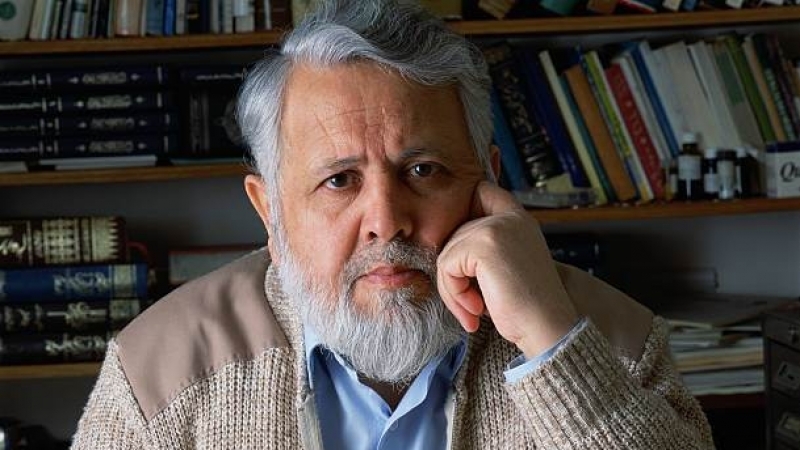Kalim Siddiqui: a scholar par excellence
Developing Just LeadershipMuhammad H. al-'Asi
Dhu al-Hijjah 04, 1418 1998-04-01
Features
by Muhammad H. al-'Asi (Features, Crescent International Vol. 27, No. 3, Dhu al-Hijjah, 1418)
The scholars of Islam are that assembly of ulama who have internalized the knowledge of Islam and communicate their understanding to the public. It is not enough to know facts, nor even to verbalize them. What is real is the implementation of this higher knowledge within the daily life of individuals and societies, persons and properties, families and nations, and regions and hemispheres.
The body of Islamic scholars in our time is in a state of gestation. They are struggling to understand the Qur’an and Sunnah in context. Many, regrettably, are unable to see the Qur’an and noble Prophet (upon whom be peace) in the context of today’s world. These undeveloped scholars present an undeveloped image of Islam to the public. As a consequence we are unable to develop a relevant Islam that addresses the issues of our time and place. In analyzing this scholarly anaemia, we find a common blind spot shared by the overwhelming majority of such scholars: the issue of power. These scholars do not address the issues of power in Islam and in today’s world, and so have have contributed significantly to the emergence of a Muslim Ummah which is powerless and vulnerable. Some of these expedient scholars throw a passing reference to ‘power’ issues such as Kashmir, Algeria, and Iraq, but only to pre-empt potentially difficult questions. To add insolence to ignorance, most of these respected scholars (respected by a yet-to-mature public) wear the attire of the Prophet (peace be upon him). The late Dr Kalim Siddiqui stands out from this crowd as a rare scholar in his own right. Unlike formally qualified individuals, who imbibed religious information from formal Islamic universities and religious seminaries, many through mere rote learning, Dr. Siddiqui did not fit into this traditional image. His writings, speeches, presentations, and works were, however, Islamically centered, Qur’anically referenced, and prophetically driven. He could see issues that were beyond the bounds for the conventional Muslim scholar. Dr. Kalim could go with his fresh and relevant Islamic information and ideas where no other scholar in our time has gone before. Dr. Kalim broke new mental grounds as he observed the forces of kufr at work today against the Ummah, as he analyzed the forces of history, their results and their possibilities for today’s Muslims.
Many ulama have trouble with the various versions of Muslim history: the Sunni, the Shi’i, and so on. A typical Sunni ‘alim would not quote from a Shi’i source, and vice versa. Dr Kalim had a unique ability to move comfortably between two versions of history and identify the positives and the negatives as they relate to each other and the issues of power, governance, and politics. This not only says volumes about his research abilities and his scholarly objectivity but it also indicates that he had no irritants in his heart against Muslims of any school of thought. We say this because it is precisely this subjective bias that has bedeviled other scholars and rendered their works one-sided or prejudiced. Dr Kalim was not a man who was impressed by petty arguments relating to fine fiqhi or theological points. He did not evaluate Muslims by the manner of their daily rituals as much as he was interested in assessing Muslims as to their fulfillment of their role as Allah’s empowered species on earth (khulafa). An alim who appreciates personal diversity (the personal fiqhi latitude of legitimate Islamic options) while insisting on collective unity of purpose (the consolidated character of a united ummah vis-a-vis the forces of kufr) is rare indeed today. Dr Kalim was not constrained, like other ulama, by his personal preferences in matters of salat, siyam or Hajj. He bypassed these, as should other responsible ulama, to concentrate on the issues of power and governance.
Dr Kalim took a closer and sharper look at reality, as well as history. He realized that the problems we Muslims have today can all be traced to the absence of Islamic government, the seat of Islamic power and dignity. In his book Stages of Islamic Revolution, Dr Kalim track the fatal shift from the prophetic model of governance to a monarchical system during the Umayyads period and thereafter. He outlined the historical sequence that was to engulf and affect all Muslims, which he identified as ‘Islam, error, deviation, correction and convergence.’ These are all power concepts: Islam as a power, error as power usurpation, deviation as power inheritance, correction as the power of revolution, and convergence as the combined power of the Sunni and Shi’i forces of history.
Finally, Dr Kalim saw in the Hajj an annual conference with the promise and potential for a worldwide impact beginning with the Ummah and then reaching the farthest corners of the globe. No one can speak about the prospect and the potency of the Hajj if they cannot address the deliberate Saudi control and command of the Hajj season, and their bid’ah of reducing Hajj to meaningless motions and directionless deliberations, a fact that has affected millions of people who travel to Mecca and Medina to feel only isolated moments of ecstasy amid the misery and emptiness that engulfs one. Dr Kalim, may Allah rest his soul in peace, felt the pains of the Ummah and was not tied by the pennies of its enemies. Thus, he was free to entertain the hope of the Muslim masses that one day the Hajj will be meaningful, dignified, and liberated.
What distinguished Dr Kalim was his total attachment to the principles of the Qur’an and Sunnah when many others were attracted to anti-Islamic ways and means. Distinguished he lived, and distinguished he passed on.
Muslimedia: April 1-15, 1998


